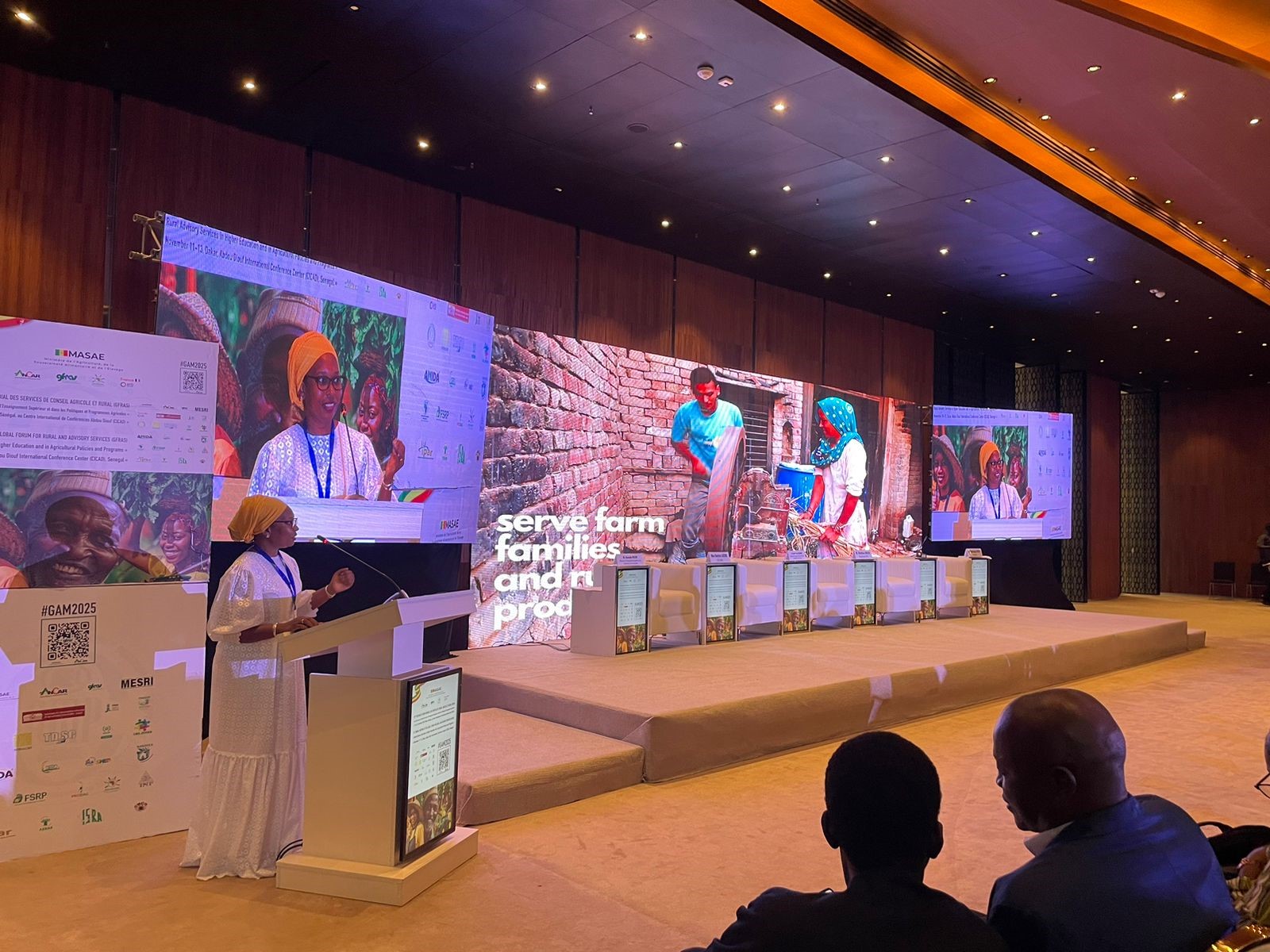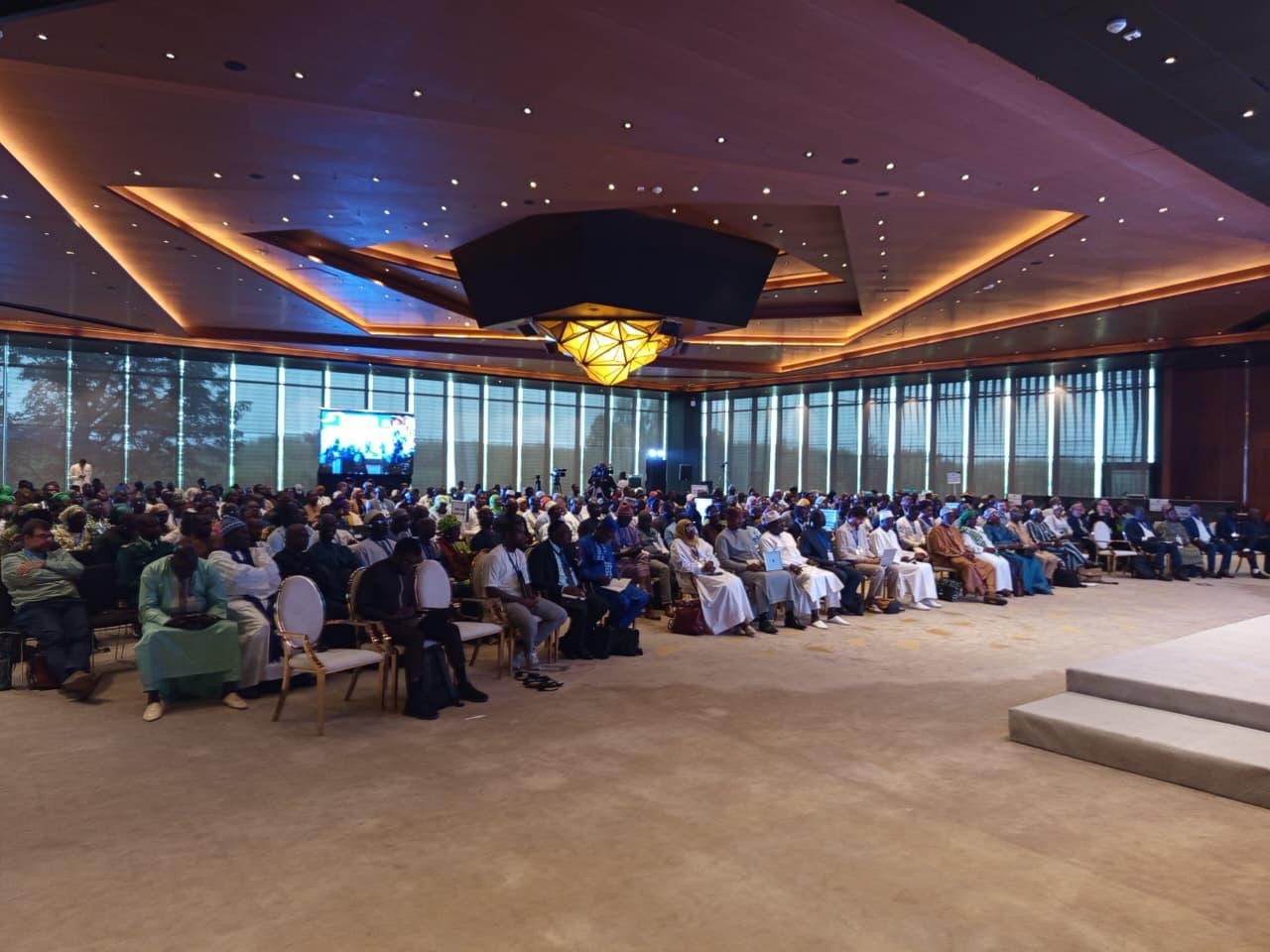
A Briefing from the 2025 GFRAS Annual Meeting
The 15th Annual Meeting of the Global Forum for Rural Advisory Services (GFRAS) took
place in Senegal, marking the first time the event was held in West Africa. Co-organised with RESCAR-AOC and ANCAR, and supported by the Government of Senegal, the gathering brought together more than 400 participants from nearly 40 countries. Delegations included Ministers of Agriculture and Education from across the region, leading universities, national advisory agencies, producer organisations, youth representatives, and international partners.
This year’s edition focused on the theme “Rural Advisory Services in Higher Education and in Agricultural Policies and Programmes.” Over three days, the meeting created a dynamic space for exchange, reflection, and strategic alignment through high-level panels, keynote presentations, expert sessions on four sub-themes, and a field visit illustrating Senegal’s advisory ecosystem in practice.
Across the discussions, several clear messages emerged. Participants recognised that many countries have made significant progress in integrating advisory services into higher education programmes. Dedicated modules and emerging academic pathways are helping to prepare the next generation of advisors. At the same time, advisory services are gaining stronger visibility within national agricultural policies and programmes, supported by specialised agencies and technical departments. The sector is also becoming more diverse, with a growing plurality of service providers, and with digital tools gradually expanding the reach and responsiveness of advisory systems. The meeting also highlighted a growing interest from young people in revitalising agricultural professions, including advisory roles.
Despite these advances, structural challenges persist. Participants pointed to weak
coordination between research, training institutions, and advisory systems, often due to
institutional silos and a lack of incentives for collaboration. Too few specialised higher
education programmes exist to build the technical, functional, and social competencies
required of today’s advisors. Research on advisory methods and impact remains
underdeveloped. Many countries face a shortage of advisors, particularly at community level, where endogenous advisors play an important but insufficiently recognised role. In a context of diverse service providers, fragmentation and the absence of shared reference standards continue to limit effectiveness. Finally, participants stressed that policy reforms alone are not enough; consistent and well-supported implementation remains a key bottleneck.

In response, the meeting produced a set of forward-looking recommendations. Participants called for stronger mechanisms to link research, training, and advisory services, alongside a revision of incentive structures to encourage collaboration. They emphasised the need to use ongoing national reforms to anchor advisory services more firmly in higher education, including through the establishment of dedicated training pathways and competency frameworks aligned with the New Extensionist principles. The social and organisational dimensions of advisory systems must also be better integrated into programme design and governance. Capacity development and knowledge sharing emerged as central priorities, with a particular call to establish or strengthen national dialogue platforms to support coordination, learning, and advocacy. The institutionalisation of national and regional advisory platforms, in collaboration with RESCAR-AOC, AFAAS, and GFRAS, was highlighted as key to improving visibility, influence, and alignment with policy processes.
Participants also encouraged renewed support for endogenous advisors, including through national and regional certification systems, as well as increased use of digital technologies to modernise the sector and attract youth. Finally, they called for stronger documentation of the impact of advisory services to reinforce their strategic role alongside research and innovation.
Participants concluded the meeting by reaffirming their shared commitment to strengthening agricultural advisory services as a central driver of agricultural transformation and sustainable food systems. The momentum generated in Senegal, and the strong leadership from West Africa in particular, represents an important step forward for the global advisory community.
